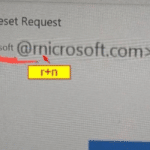Every click, login, or shared file opens your business to hacking, data leaks, or ransomware. Small and medium businesses are especially at risk, as hackers often see them as easier targets.
Let’s break down the top advanced cybersecurity solutions and why every company needs them right now.
What are Advanced Cyber Security solutions?
Advanced cybersecurity solutions are specialised tools and strategies built to defend against increasingly sophisticated cyber threats and cyber attacks.
These solutions go beyond basic security measures, incorporating robust cybersecurity technology to counteract complex attacks like ransomware, zero day exploits, and advanced persistent threats.
From AI driven threat detection and response tools, advanced cybersecurity solutions are designed to adapt quickly, providing businesses with a dynamic defence against evolving risks. It has been found by Sentinel One that 60% of organisations are expected to use cybersecurity risk as a primary factor in conducting third-party transactions and business engagements by 2025
Top Cybersecurity Issues for Businesses
Understanding the wide range of cyber threats businesses face today is essential for creating an effective security strategy. Here are eight of the most pressing cybersecurity issues impacting businesses:
1. Data Breaches
Data breaches, where sensitive information is accessed or exposed without permission, pose severe risks for businesses and often lead to financial and reputational damage.
Businesses should implement strong data security practices, such as encryption, firewalls, and advanced intrusion detection systems, to guard against data breaches.
2. Ransomware Attacks
Ransomware is malicious software that locks a user’s data, demanding a ransom for access.
These attacks can disrupt operations and cause significant downtime.
Regular backups, advanced threat detection, and rapid response protocols are essential to counter ransomware.
3. Phishing Attacks
Phishing attacks use deceptive messages to trick individuals into revealing personal information, like passwords or financial details. These attacks can lead to serious breaches, making email security, employee training, and anti-phishing tools critical for prevention so that you can identify and address vulnerabilities.
4. Cloud Security Challenges
As businesses shift to cloud platforms, security concerns like misconfigurations and unauthorized access become more prominent.
Using cloud-native security tools and a robust application protection platform can help safeguard data and systems in the cloud.
5. Advanced Persistent Threats (APTs)
APTs are prolonged, targeted attacks where hackers infiltrate networks and remain hidden for an extended period.
These sophisticated attacks require a comprehensive cybersecurity approach, including ongoing monitoring, threat intelligence, and rapid incident response.
6. Insider Threats
Insider threats occur when trusted individuals misuse their access, either intentionally or accidentally.
Identity and access management systems, alongside monitoring tools, are essential for minimizing these risks.
7. IoT Vulnerabilities
Internet of Things (IoT) devices often lack robust security, making them potential entry points for attackers.
Network security solutions and endpoint protection tools are vital to securing these devices and reducing IoT vulnerabilities.
8. Third-Party Risks
Third-party vendors can expose businesses to additional security risks if they have weak practices.
Conducting rigorous security assessments for vendors and setting up strict access controls helps reduce the risk of third-party breaches.
Advanced Cybersecurity Measures to tackle cybersecurity threats
Advanced cybersecurity solutions offer powerful defences to combat the most sophisticated cyber threats, ensuring that your business stays secure against evolving attacks.
From AI-driven threat detection to robust data encryption, these solutions provide multi-layered protection to safeguard sensitive information and critical systems. Let's take a look at them below
Multi-Factor Authentication (MFA): Layered Security
Ever been prompted to verify your login with a code sent to your phone?
That’s MFA in action.
With more data leaks happening daily, relying on a single password isn’t enough. MFA requires users to verify their identity in multiple ways, like through text or an app, making it much harder for hackers to break in so your information remains secure.
Why It’s Essential:
- Extra Layer: Adds a safety net, so even if your password’s leaked, hackers hit a wall.
- Quick to Implement: Most platforms already support MFA, so rolling it out across your systems is easy.
Endpoint Detection and Response (EDR): Real-Time Threat Detection
Endpoint security tools keep an eye on all devices connecting to your network through continuous monitoring to create real time threat detection.
Why It’s Essential:
- Fast Alerts: Cuts response times, allowing you to stop threats before they cause damage.
- Full Coverage: Detects potential risks across laptops, phones, tablets, and even IoT devices.
AI-Powered Threat Intelligence: Staying a Step Ahead
AI-driven solutions analyse large amounts of data in seconds, picking up on unusual patterns before a human would even notice to stay ahead in the digital age.
Why It’s Essential:
- Smart Defense: AI spots the tiniest irregularities, so you don’t have to.
- Fast Decision Making: Automatically prioritises high-risk threats, ensuring critical issues get attention.
Zero Trust Network Access (ZTNA): Trust Nobody
Every access request is vetted, double-checked, and monitored, allowing for a comprehensive cybersecurity solution.
Why It’s Essential:
- Strict Access Control: Only lets in what’s necessary, closing the door on potential threats.
- Perfect for Remote Work: Ensures no weak links, even with teams working from home.
Ransomware Protection: Not Just Backups
Backups are great, but ransomware protection goes further.
Today’s hackers don’t just hold data hostage as they steal it, delete backups, and demand payment.
Ransomware tools offer automated backup, real-time threat response, and protection against hackers trying to disable defences, elevating your security posture.
Why It’s Essential:
- Multi-Layered Defense: Stops ransomware before it spreads.
- Affordable Insurance: A solid ransomware plan can save a lot of money and stress.
Dark Web Monitoring: Know When You’re at Risk
The dark web is where stolen data often ends up for sale, which is why Dark web monitoring is important, as it scans these spaces to see if any of your business’s sensitive information is circulating.
Why It’s Essential:
- Early Warning: Catch compromised data before it’s used against you.
- Quick Response: Immediately secure accounts and data if something’s found.
How Silver Lining Can Be Your Managed Security Service Provider
At Silver Lining, we provide advanced, tailored cybersecurity solutions to protect businesses of all sizes. Our security solutions include proactive threat monitoring and 24/7 managed support, ensuring your company is always protected from evolving threats like phishing, ransomware, and data breaches. With real-time detection and response, we don’t just react to attacks. We actively prevent them, giving you peace of mind.
Our expert team also guides you through compliance and data protection requirements, helping you meet industry standards without the stress. Recognising that cybersecurity can feel costly, we offer affordable, scalable solutions that grow with your business. With Silver Lining, you get a reliable partner in cybersecurity, keeping your business safe so you can focus on what matters most.
FAQs about Advanced cyber security solutions
Q1: How much do advanced cybersecurity solutions cost?
Costs vary widely depending on your needs and the tools you choose.
But remember, prevention is always cheaper than dealing with a breach.
Q2: Is cybersecurity only for large businesses?
Absolutely not.
Every business, big or small, is vulnerable.
Q3: How do I choose the right solution for my business?
Start by assessing your company’s most valuable data and go from there.
Working with a security expert can also make the selection process smoother.
Q4: Can I handle cybersecurity internally?
It’s possible, but having a dedicated security team or a managed provider often yields better results.


